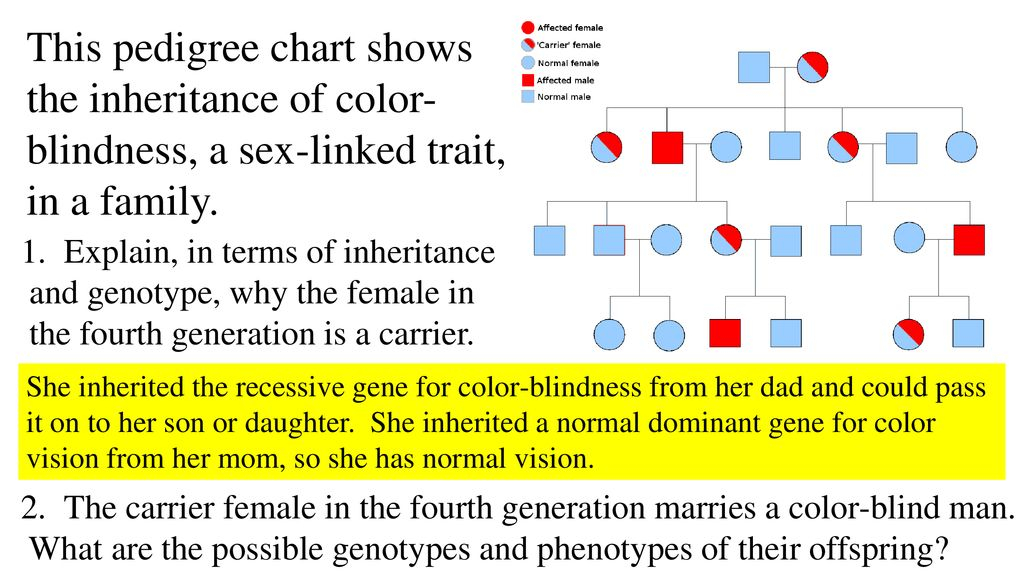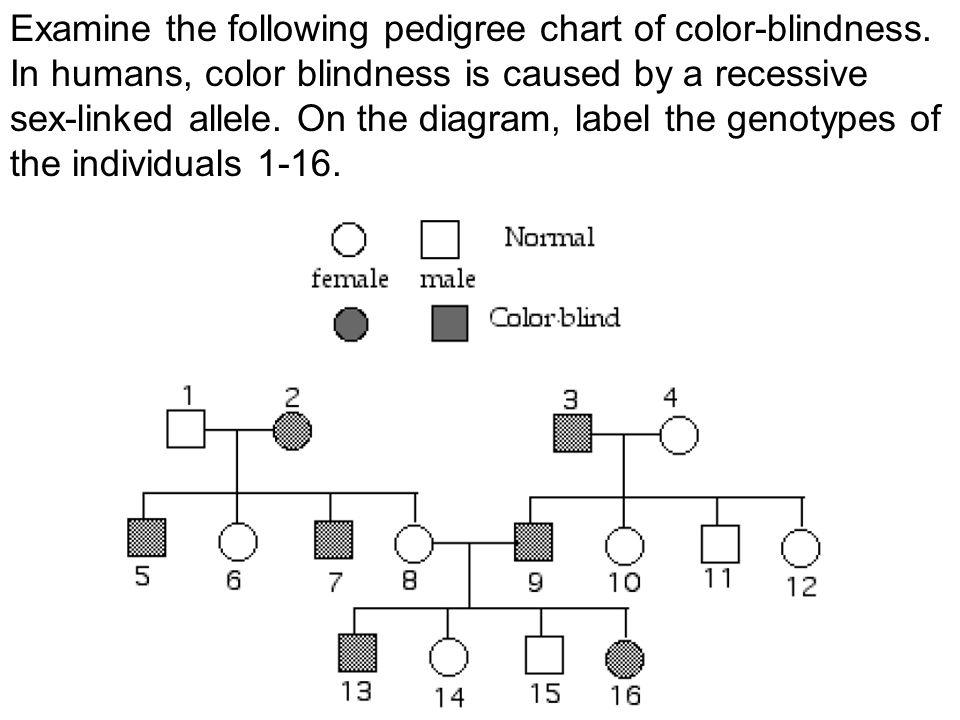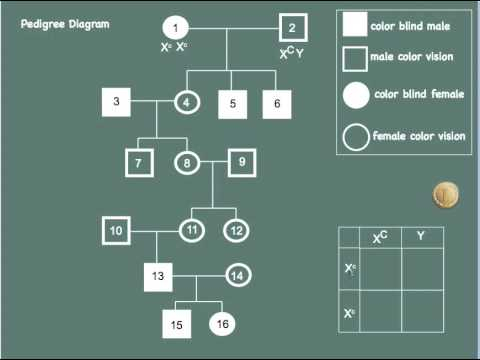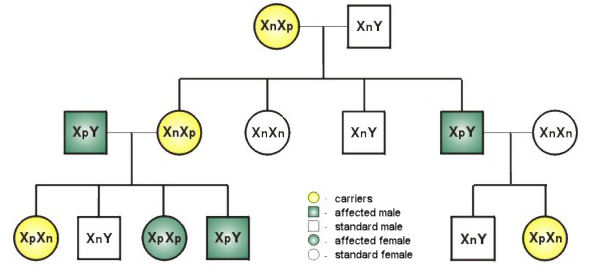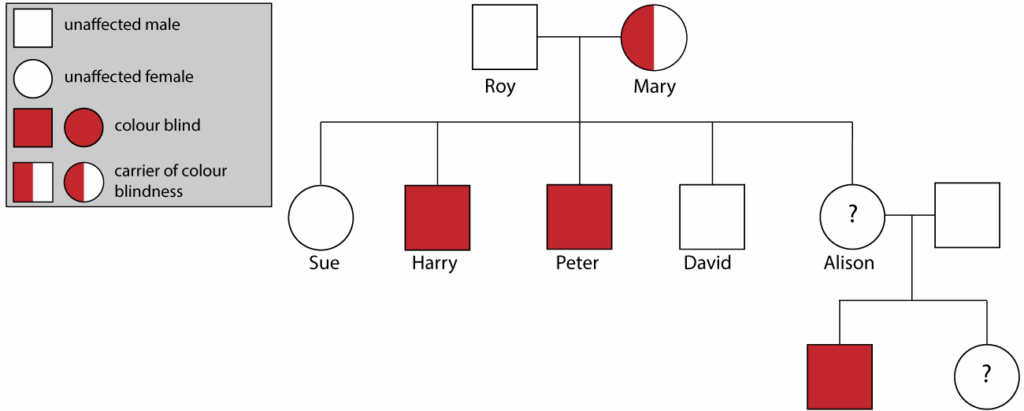A pedigree chart is a diagram that shows the genetic relationships among individuals in a family. It is commonly used in genetics to track the inheritance of traits or diseases within a family over multiple generations. Each individual in the chart is represented by a symbol, with lines connecting them to show their relationships.
Color blindness is a genetic condition that affects the ability to distinguish colors. It is more common in males than females because the genes responsible for color vision are located on the X chromosome. In a pedigree chart for color blindness, affected individuals are typically represented by shaded symbols, while carriers (individuals who have the gene but do not show symptoms) are represented by half-shaded symbols.
A Pedigree Chart For Color Blindness
Interpreting a Color Blindness Pedigree Chart
When analyzing a pedigree chart for color blindness, it is important to look for patterns of inheritance. Color blindness is an X-linked recessive trait, meaning that the gene responsible for color vision is located on the X chromosome and individuals need two copies of the gene to be affected. This means that males are more likely to be affected because they only have one X chromosome, while females need to inherit two copies of the gene to be affected.
Download A Pedigree Chart For Color Blindness
Red Green Color Blindness Pedigree Chart Ponasa
Analyzing A Family History Of Colour Blindness Pedigree Charts YouTube
Pedigree Chart Labeled
Color Blind Pedigree Chart
